If you want to know more about genes, heredity, and cutting-edge science, then you might consider signing up for an accredited online genetics course.

You could take a stand-alone class or work toward a full degree in a genetics-related field. Degree programs in genetics are available at the bachelor’s, master’s, and doctoral levels.
Editorial Listing ShortCode:
By studying genetics, you may have opportunities to explore the fundamentals of life, conduct groundbreaking research, or guide others through weighty decisions about having children or treating diseases.
Accredited Online Genetics Course Programs

Are you interested in how traits are passed down through generations? Would you like to help others make informed decisions about health risks for themselves and their children? Do you want to be on the cutting edge of today’s research in the biological sciences?
If you’ve answered “yes” to any of these questions, then you might be interested in taking a genetics class online. Genetics classes are typically offered by a college’s science department, and these courses often include lab components. Also, genetics online courses typically require students to go beyond rote memorization of concepts. Instead, they encourage students to become analytic thinkers and problem solvers.
Topics you might study in college genetics courses include:
- Animal breeding
- Bioethics
- Biotechnology
- Cancer and other diseases
- DNA and RNA
- Epigenetics
- Evolution and human migration
- Gene mapping
- Genetic screening
- Genome sequencing
- Mendelian science
- Proteins
Some of these topics are covered in undergraduate genetics programs, while others are reserved primarily for students working toward advanced degrees. At the undergrad level, a genetics course might be required for people majoring in biology, developmental biology, genetics and genomics, or pre-health professions.
Editorial Listing ShortCode:
Masters programs that include genetics courses include molecular biology, human genetics, pharmacogenomics, and genetic counseling. At the doctoral level, you could study molecular genetics, medical genetics, bioinformatics, or developmental genetics.
People who study genetics do various jobs, depending on their interests and education level. Lab technician jobs are common for those who are just entering the field. An advanced degree might help you qualify to work as a scientist or a genetic counselor.
Genetics Careers & Salaries
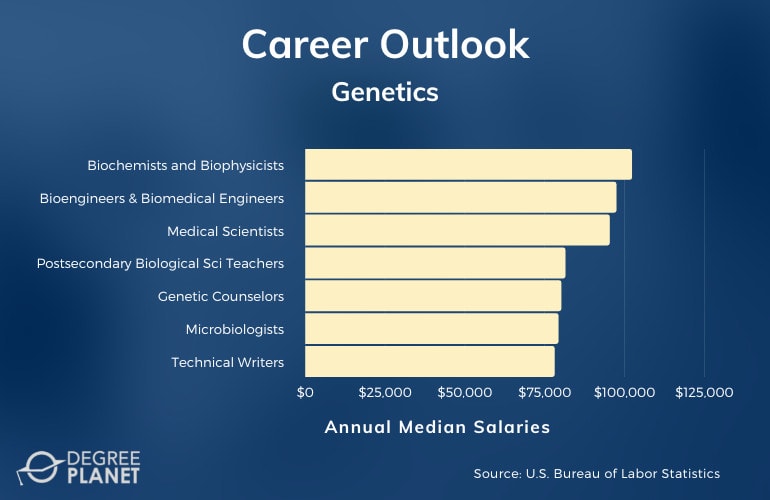
There are many different science career paths for people who study genetics. Early in your career, you might pursue work as a technician in a medical or research setting. Entry-level roles include medical lab technician, food science technician, agricultural science technician, and biological technician.
Some professionals become science writers. Many websites, magazines, and news outlets need communicators with medical or scientific training. Technical writers could also prepare manuals for medical equipment or other complex gear. According to the Bureau of Labor Statistics, the median salary for jobs in the life, physical, and social sciences is $72,740.
| Careers | Annual Median Salaries |
| Biochemists and Biophysicists | $102,270 |
| Bioengineers and Biomedical Engineers | $97,410 |
| Medical Scientists | $95,310 |
| Postsecondary Biological Science Teachers | $81,440 |
| Genetic Counselors | $80,150 |
| Microbiologists | $79,260 |
| Technical Writers | $78,060 |
| Agricultural and Food Scientists | $74,160 |
| Clinical Laboratory Technologists and Technicians | $57,800 |
| Biological Technicians | $48,140 |
Advanced degrees in genetics or related fields are required for many of these positions. Master degrees and PhDs can lead to more advanced roles in science. These roles include molecular biologist, medical scientist, genetic engineer, animal scientist, microbiologist, and food scientist.
Genetic counselors are specialists who help people understand their predisposition to hereditary conditions. They may run tests, evaluate disease risks, and share their findings with doctors and patients. People who study genetics may also want to be teachers.
Editorial Listing ShortCode:
Someone with a bachelors degree and a teaching license could qualify to teach biology at the high school level. Advanced degrees could lead to a career in college science education.
Genetics Curriculum & Courses

If you decide to pursue an undergraduate major in genetics or an advanced degree, what type of classes will you take? Colleges for genetics may offer some of the following courses:
- Embryology and Genetics: You could take a class about genetic influences on human reproduction, including conception, embryo development, and birth.
- Ethics in Biomedicine: There are some ethical complications involved with genetics research, so this course will help you develop a framework for responding to ethical dilemmas.
- Genetic Engineering: In this class, which may include lab opportunities, you can look at splicing, cloning, and other methods of gene manipulation.
- Functional Genomics: You can explore current knowledge about how genes interact with one another, and you may also learn about cutting-edge technologies that are used for research in this area.
- Inherited Conditions: You can learn about how diseases and syndromes are passed down in families, and you can study some common heritable conditions.
- Introduction to Genetics: In a foundational undergraduate class, you’ll learn about genes, inheritance, and species variation.
- Molecular Genetics: This subfield of genetics deals with DNA, RNA, and proteins and examines their functions and interactions.
- Population Genetics: At the graduate level, you could delve into genetic trends among various groups and the implications for our understanding of human migration and species development.
- Proteomics: Closely related to genomics, the study of proteomics focuses on an advanced understanding of proteins and their roles.
- Research Methods: For graduate programs, you’ll develop a firm grasp of how to conduct genetics research and handle data.
The course selection can vary widely among schools. Also, undergrad genetics classes typically provide foundational overviews, while grad programs have more specialized offerings.
Admissions Requirements

Whether you want to take just one class or earn a whole degree, it’s necessary to first apply to college. Application packets often include:
- Reference letters
- Standardized test scores (not required at all schools)
- Transcripts from high school or previous college programs
- Writing samples
The admission requirements may be quite different for bachelors programs than for masters or doctoral degrees. If standardized test scores are required, undergraduate programs will request ACT or SAT scores, while graduate programs often evaluate GRE scores.
Online Genetics Courses Accreditation
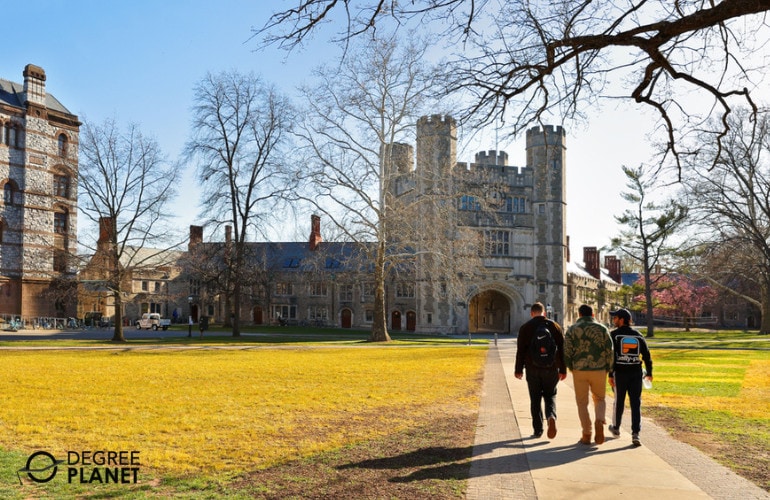
Even if you’re taking only one class, it’s beneficial choose an accredited college for your genetics studies. The highest standard is regional accreditation, and it’s widely accepted as a mark of quality.
Editorial Listing ShortCode:
If you end up wanting to transfer to another college after taking some genetics classes, accreditation increases the chances that your coursework will be accepted by other schools. Accreditation also improves the likelihood of being admitted to higher degree programs, securing research fellowships, or being hired for industry positions.
What Is Genetics?

Genetics is one branch of the scientific field of biology. Geneticists study genes—in humans or other organisms—and their influence.
Common topics in genetics classes include DNA, heredity, variation, and evolution. Subfields of genetics include human genomics, population genetics, and genetic engineering. Genetics research is influential in fields like agriculture, healthcare, and anthropology. Colleges for genetics offer programs that may appeal to aspiring lab technicians, medical researchers, food scientists, genetic counselors, and bioengineers.
There is still much to be learned about genes and genomes, so geneticists are often on the cutting edge of current science.
Is Genetics a Hard Class?

In a genetics program, you might study topics like heredity, nucleic acids, proteins, human development, evolution, and cell biology. You may also debate ethics and conduct research. The courses for majors in genetics might be different from other science classes you’ve taken in the past.
Typically, memorization alone won’t be enough to get you through these classes. Rather, you’ll ask probing questions, analytically think through solutions, and practice with the material until you know it well enough to teach others. Also, lab work is fairly common in genetics programs, so there are often opportunities for hands-on learning.
How Long Does It Take to Become a Geneticist?
You can typically qualify for a job related to genetics, such as being a lab technician, with only a bachelor’s degree. It generally takes 4 years to get that degree, but you might be able to complete it a bit faster with a self paced online genetics course.
Editorial Listing ShortCode:
Becoming a genetic scientist or a genetic counselor will take longer, though, since these positions require at least a master’s degree. The good news is that a number of universities offer online master’s in genetics programs, which may let you get your advanced degree without interrupting your work schedule.
Some advanced roles require a doctorate or a medical degree. Overall, it’s common to spend about 10 years earning the necessary credentials to be considered a geneticist.
Universities Offering Online Genetic Courses Program
Methodology: The following school list is in alphabetical order. To be included, a college or university must be regionally accredited and offer degree programs online or in a hybrid format.

The Genetics course at Cleveland Community College includes a 3 credit lecture component and a 1 credit lab. It is available online and can be taken in the fall, spring, or summer semesters. A general biology course is a prerequisite. The course materials cover chromosomal structure and genetics at the cellular level.
Cleveland Community College is accredited by the Southern Association of Colleges and Schools Commission on Colleges.

Colorado State University offers a course entitled BC 353 – Pre-Health Genetics. This is an 8 week, asynchronous online course. The school recommends students to take courses in general biology, biochemistry, and organic chemistry prior to this one. The course uses an electronic textbook, but a hard copy may be used if desired.
Colorado State University is accredited by the Higher Learning Commission.
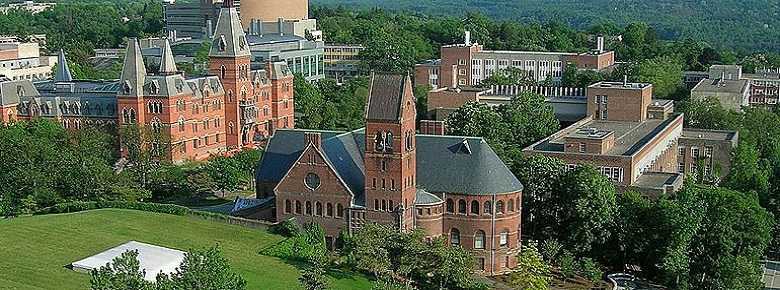
Cornell University offers a course entitled BIOMG 2800 Lectures in Genetics and Genomics. As a prerequisite, students need to have taken at least one introductory biology course at the college level. The course is online and 8 weeks long. It covers genetic transmission, mutations, genome analysis, and more.
Cornell University is accredited by the Middle States Commission on Higher Education.

Doane University offers an undergraduate level course entitled BIOL 225 Genetics through its Open Learning Academy online program. The class covers the basics of heredity, chromosome structure, genetic diseases, and more. The program recommends students to take Biology I and II before taking this course.
Doane University is accredited by the Higher Learning Commission.

Duke University offers an online course entitled Introduction to Genetics and Evolution. This self-paced course is designed to provide students a better understanding of how DNA works and prepare them for more advanced coursework in biology and related fields. The course’s lectures are in English, but subtitles are available in other languages.
Duke University is accredited by the Southern Association of Colleges and Schools Commission on Colleges.

Harvard University offers four different online genetics courses: Bioethics, HMX Genetics, Cancer Genomics and Precision Oncology, and Genetic Testing and Sequencing Technologies. Each course is 10 weeks long. The courses are self-paced but usually require a time commitment of 2 to 6 hours per week.
Harvard University is accredited by the New England Commission of Higher Education.

Liberty University offers a course entitled Human Genetics – BIOM 503. The class is online and 8 weeks long. The course covers genes and their effects on human health, with an emphasis on epigenetics. Online discussion boards provide opportunities for collaboration. Liberty teaches from a biblical worldview.
Liberty University is accredited by the Southern Association of Colleges and Schools Commission on Colleges.

North Carolina State University offers an online course called GN 301: Genetics in Human Affairs. The course does not require any prerequisites. This is an introductory-level course for students who do not intend to major in the sciences. It can be taken during the fall, spring, or summer semesters.
North Carolina State University is accredited by the Southern Association of Colleges and Schools Commission on Colleges.

Southern California University of Health Sciences offers GEN 331: Human Genetics. This course includes a 3 credit lecture component and a 1 credit lab component. The lab component is held virtually over Zoom. The course is designed for those intending to enter health and allied health professions.
SCUHS is accredited by the Western Association of Schools and Colleges.
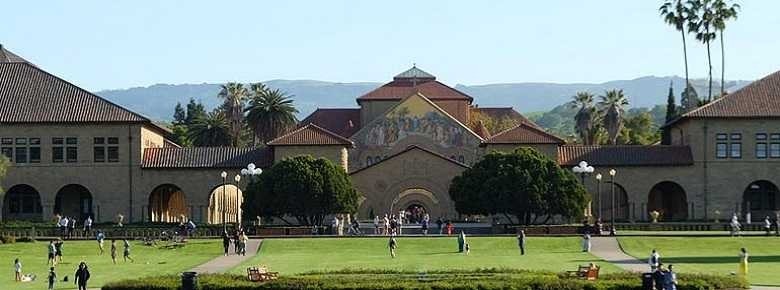
Stanford University offers a Stanford Certificate of Achievement in Genetics and Genomics. It requires the completion of 6 self-paced online courses total—two required courses and four electives. The two required courses are Fundamentals of Genetics: The Genetics You Need to Know and Genomics and the Other Omics: The Comprehensive Essentials.
Stanford is accredited by the Western Association of Schools and Colleges Senior College and University Commission.

SUNY Empire State College offers a course in Genetics. The class covers topics like stem cell research, cloning, DNA fingerprinting, biotechnology, recombinant DNA, and heredity. Students can attend this class fully online as an individual course or as a part of one of SUNY’s online degree programs.
SUNY Empire State College is accredited by the Middle States Commission on Higher Education.

Tufts University offers BIO 0041 General Genetics online. As a prerequisite, students must have completed BIO 0013 Cells & Organisms or an equivalent at a different university. The course emphasizes critical thinking and covers topics such as cell mitosis and meiosis, gene mapping, genomics, and more.
Tufts University is accredited by the New England Commission of Higher Education.

The University of California—Berkeley offers Genetics through its online extension school. The course is available in both synchronous and asynchronous formats. The class covers topics such as Mendelian genetics, population genetics, developmental genetics, and more. Students must take a general biology course before taking this course.
The University of California – Berkeley is accredited by the Western Association of Schools & Colleges.

The University of Cincinnati offers a Fundamentals of Molecular Genetics course that can be taken 100% online. The course is part of the undergraduate program in Medical Sciences. It is 3 credit hours and has set meeting times. Topics covered include molecular mechanisms, DNA forensics, gene therapy, and more.
The University of Cincinnati is accredited by the Higher Learning Commission.

The University of Maryland Global campus offers BIOL 220 Human Genetics online. The course is 3 credit hours. It is designed to help students develop a basic understanding of how genes influence human appearance and behavior. It also covers genetic variation and disease mechanisms. This is an introductory-level course.
The University of Maryland Global Campus is regionally accredited by the Middle States Commission on Higher Education.

The University of Nebraska – Lincoln offers Genetic Principles online. This is a series that includes three modules: Inheritance in Families and Populations, Chromosomes and Genes, and Molecular Genetic Engineering, DNA and Testing Methods. Each module usually takes 40 to 60 hours to complete. Students do not need to purchase any textbooks to complete the series.
The University of Nebraska-Lincoln is accredited by the Higher Learning Commission.
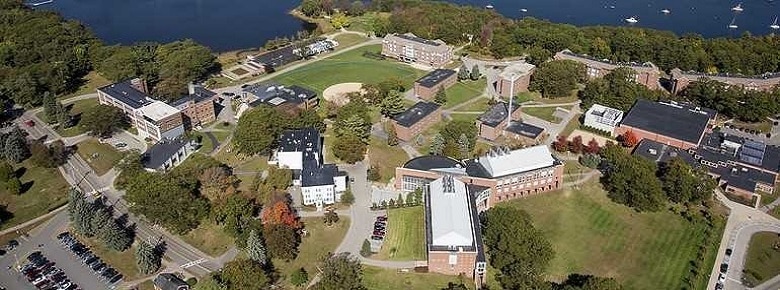
The University of New England offers a 100% online, self-paced course entitled BIOL 1040: Genetics Lecture and Lab. Even exams can be done online. The course is worth 4 credits. One semester of general biology is a prerequisite. Students in the course need to purchase laboratory materials and own a webcam.
The University of New England is accredited by the New England Commission of Higher Education.

The University of Phoenix offers an undergraduate-level course entitled BIO 410 Genetics. The course is 5 weeks long and worth 3 credits. It covers topics such as cell division, chromosomes, DNA, RNA, gene regulation, genetic mutations, biotechnology, and more. Students are required to have 3 credits of college-level biology before taking this course.
The University of Phoenix is accredited by the Higher Learning Commission.

The University of South Carolina offers an online course called Genetic Counseling: Career for the Future. It is designed specifically for those who want to become genetic counselors and help prepare them for graduate school. The course includes both lectures and reading materials and is 12 weeks long.
The University of South Carolina is accredited by the Southern Association of Colleges and Schools Commission on Colleges.

The University of the Sciences offers an MS in Genetics. Many of the courses in this program are available online. Options include Intro to Genomics, Genetics Concept Testing and Translation to Healthcare, Ethical, Legal, Social Issues in Genomics and Pharmacogenomics, and more.
USciences is accredited by the Middle States Commission on Higher Education.
Getting Your Genetics Course Online

Whether you’re an undergraduate student or a graduate student, you can enroll in genetics courses to learn more about biology, gene therapy, or the human genome. Course options may range from introductory genetics instruction to advanced research tracks.
Studying genetics could help satisfy your curiosity about the natural world or move you toward a career in science. An online course in genetics could be a strategic way to explore whether you’d like to dig deeper into this field of study. You may decide to then continue to pursue an on-campus or online biomedical science degree or a biology degree online or even on campus. It’s essential to choose an accredited school, though, to ensure that your online coursework counts as credible college credit.
You can start exploring available options today!

